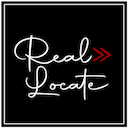
The cost of housing represents a significant portion of the budget for Czech households and has become a financial burden for many people. According to Eurostat statistics, 79% of the population in the Czech Republic opts for homeownership, which is significantly higher than in other European countries such as Austria or Germany, where rental housing predominates. This trend is a result of the cultural perspective on ownership and the desire to secure one's own property for the future.
One of the main issues associated with housing in the Czech Republic is the high property prices. In recent years, there has been a rapid increase in prices, particularly in attractive locations such as Prague. This means that many people have to allocate a significant portion of their income toward mortgage payments or loans for purchasing property. The worsening mortgage interest rates in recent years further amplify the costs associated with housing. For instance, according to the Swiss Life Hypoindex, the average mortgage rate increased from 2.40% to 6.32% between May 2021 and May 2023.
The cost of housing does not only include mortgage payments but also other regular expenses related to property maintenance. This includes costs for energy, water, service fees, insurance, repairs, and maintenance. These costs may increase over time and also impact household budgets.
According to a survey by Ipsos agency, 18% of households in the Czech Republic spend 50-75% of their income on housing-related expenses. This means that these individuals have limited financial flexibility and may face difficulties in saving money or planning for future investments. This issue is particularly prominent in the Liberec, Zlín, and Olomouc regions.
The high cost of housing also has an impact on mobility for the population. People may face challenges in relocating to another region or city due to the unavailability of affordable housing. This can affect their employment, education, and social relationships.
However, the government of the Czech Republic is attempting to address this issue. For example, state incentives have been introduced for young people and families with children who aim to acquire their own housing. These incentives include reduced VAT for new constructions, state contributions to mortgages, and support for young people in acquiring properties.
In conclusion, the cost of housing in the Czech Republic constitutes a significant portion of household budgets and poses a financial burden for many people. High property prices and rising mortgage interest rates increase the costs associated with housing. This issue can have a negative impact on the financial stability of households and limit their mobility options. The government is making efforts to enhance housing affordability through state incentives and support for young people and families.
Source: investicniweb.cz, realitaci-sobe.cz


